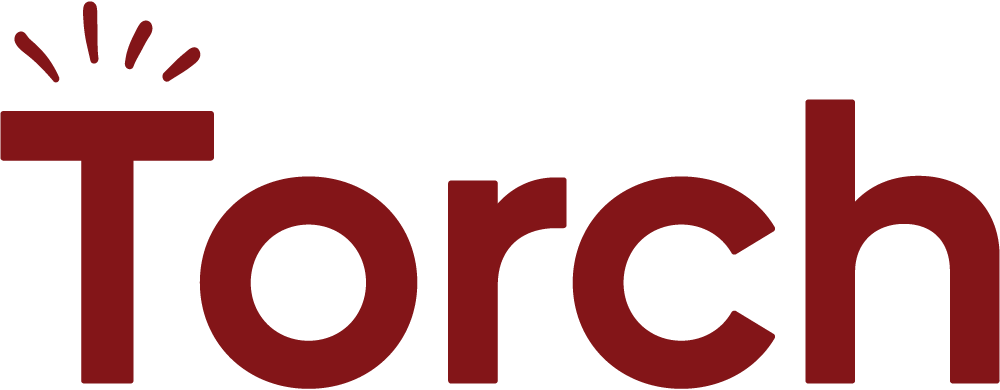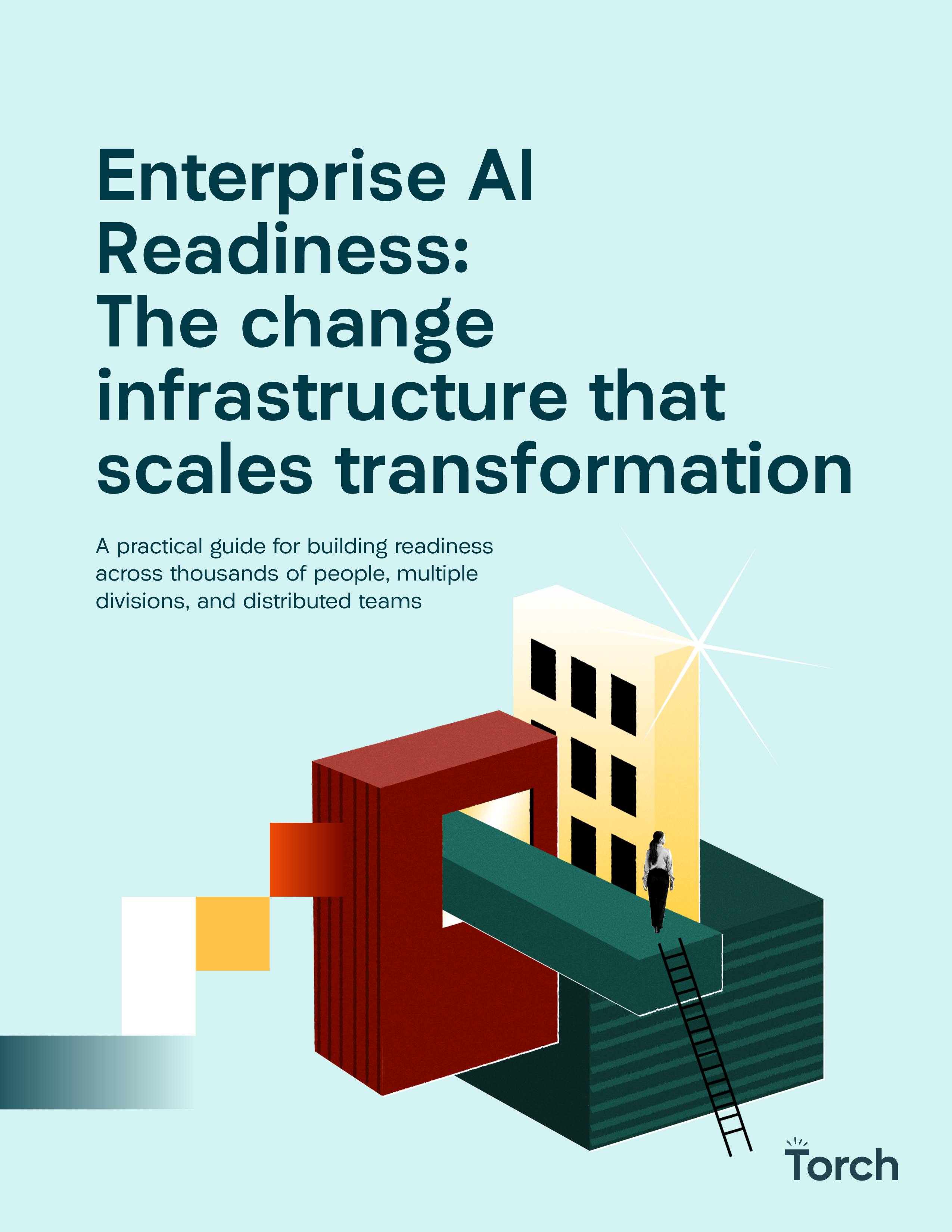- 90% of respondents say it’s important to provide leadership development more broadly
- 86% of respondents agree that personalized leadership development, such as coaching and mentoring, is required in today’s work environment
- 40% of organizations see better employee retention for those receiving coaching or mentoring—a datapoint 16% higher than those not utilizing mentoring or coaching
SAN FRANCISCO, Calif., January 24, 2023— Research published today by Harvard Business Review Analytic Services and sponsored by Torch, the people development platform that unlocks the potential of people, teams, and organizations, has found that organizations are increasingly recognizing that their existing approaches to leadership development are not producing the leadership skills critical to their futures. Organizations need a new approach, including a much broader application of coaching and mentoring.
The research examined how top-performing organizations are adapting to develop leaders capable of meeting and exceeding new expectations. The data and insights are based on the responses of 665 business leaders across industries globally.
The organizations polled were classified into three categories depending on whether they saw their current leadership development programs delivering against desired results. Based on responses, they were classified into three groups: Leaders (26%), Followers (44%), and Laggards (30%).
The study found that leadership development is changing in four key ways to support leaders and ultimately the needs of the organization:
- More personalized—The majority of respondents (86%) agree that personalized leadership development, such as coaching and mentoring, is required in today’s work environment. While leadership skills training is the most common leadership development tool (80%), it is rated as less effective than personalized and relationship-based options—35% rate skills training as extremely or very effective versus 60% for coaching
- Redefining essential leadership skills—In the face of global crises and workers who are often motivated by workplace values and commitment to DEI, many firms are moving from authoritative leadership styles towards trust-based ones. We see an increasing focus on relational skills (traditionally know as soft skills), such as the ability to cultivate strong, trusted relationships
- More inclusive—In the past, leadership development opportunities were primarily offered to senior executives or “high-potential” leaders. In contrast, 64% of respondents strongly agreed that it’s important to provide leadership development more broadly across their organizations. Approximately half of the organizations surveyed are working to increase the equity and inclusiveness of their mentoring and coaching programs
- Attracting more investment from the business—All the respondents intend to increase their use of leadership development initiatives, with the greatest planned increases in leadership skills training (61%), mentoring (55%) and leadership coaching (50%).
Leader organizations report more benefits from their leadership development investments than peers: 69% reported better collaboration/teamwork, increased employee engagement (60%), better performance from teams (59%), and greater emotional intelligence (59%). Notably, Leaders report increased revenue as an outcome of their leadership development efforts (35% of Leaders versus 12% of Followers and 7% of Laggards). Leaders achieve more measurable benefits because they are more likely to align development of internal leaders with overall business objectives (52% compared to only 9% of Laggards), customize that development to their overall objectives, and regularly use multiple metrics when evaluating the efficacy of leadership programs.
Leaders are also more likely to leverage coaching and mentorship, with 80% citing coaching as offering better collaboration/teamwork than other approaches, and 70% for mentoring. And though DEI and leadership development are often separate programs, Leaders are more likely to integrate them. They’re more likely to offer development opportunities to people across levels, to integrate diversity and inclusion into initiatives, and to increase access for underrepresented groups.
Many organizations do not centralize or consistently execute leadership development programs, and organizational-level ROI, i.e. retention or promotion, is rarely measured, in favor of simpler metrics such as participation.
Finally, all of the respondents say they are making leadership development more inclusive—and leaders are working to increase equity and inclusion in coaching and mentoring to a far greater extent.
Commenting on the findings, Josh Bersin, global HR research analyst and CEO of The Josh Bersin Company, said:
“The challenge organizations around the world face right now is not hiring technical or engineering expertise; it’s cultivating the management and leadership skills and culture to manage their brilliant people. CEOs are desperately looking for people who are creative, can solve complex problems, manage large teams of people, and deal with strategy, time management, and organizational growth. These are no longer ‘soft’ or ‘hard’ skills, but instead are the ‘power skills’ that, as our economy moves towards a more service-based and non-routine foundation, are the currency of the future.”
“As the economy and industries change, companies that focus on these business-oriented leadership skills will always outperform their peers. This Torch-sponsored Harvard Business Review Analytics Services research shows near unanimous agreement that architected, relationship-based leadership development, leveraging tech-enabled coaching and mentoring, is a groundbreaking new practice for organizations of all sizes.”
Cameron Yarbrough, CEO of Torch, said:
“At Torch, we’ve found that coaching is uniquely positioned to help leaders develop the types of relational skills that they need today, because it is personalized to an individual’s needs, applied to their day-to-day work, and holds them accountable for their goals. But simply providing coaching will not be enough. This research, which lays out the best practices of organizations with top performing leadership development programs, makes clear that the most effective ones are aligning their leadership development strategy with organizational strategy, ensuring their programs are consistent across the organization, measuring the impact of those programs, and designing them inclusively.”
Amy Lavoie, VP, People Success at Torch, said:
“Organizations are facing pressures that are redefining what skills leaders need to thrive at work. The good news is that we found leading organizations are facing them head-on—leading organizations are more likely to invest in relationship-based initiatives like coaching and mentoring, more likely to align their leadership development strategy to business objectives, to measure results, and to integrate diversity, equity and inclusion. We also found that few, if any, of these organizations do this work alone, and instead are getting expert external support to help them realize the full potential of their investment in relational skills, and their leaders they want to see thrive.”
Research methodology
The research was conducted online in August 2022 among 665 HR managers in U.S. and global firms. The study also includes extensive commentary and use cases from CHROs and people Leaders at organizations including:
Hewlett Packard Enterprise (HPE)
Horizon Media
EXec EXcel Group
IKEA
Ingka Group
YNCU.
The research also features input from a wide range of respected HR influencers and thinkers, including University of Michigan business professor Dave Ulrich, now a partner at The RBL Group, a Provo, Utah, human resources capability firm, and Michael Beer, professor emeritus at the Harvard Business School and co-founder and director of TruePoint, a Lincoln, Mass.-based management consultancy. A full version of the report with complete survey findings is available on the Torch website.
About Harvard Business Review Analytic Services
Harvard Business Review Analytic Services is an independent commercial research unit within HBR conducting research and comparative analysis on important management challenges and emerging business opportunities. Contact the team at [email protected].
About Torch
Torch is the People Development Platform that unlocks the potential of people, teams, and organizations. With Torch, you can deliver inclusive, integrated, and impactful coaching and mentoring programs that drive the success of your people—and your organization. Leading brands use Torch to develop their people, create stronger leaders and managers, and drive business performance. To learn more about Torch, please visit www.torch.io.









